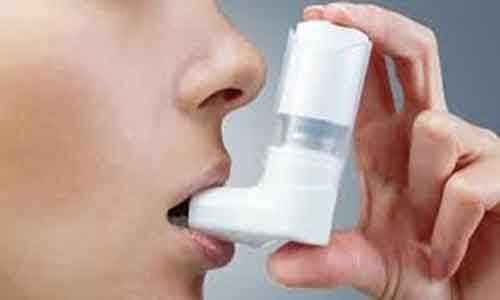- Home
- Medical news & Guidelines
- Anesthesiology
- Cardiology and CTVS
- Critical Care
- Dentistry
- Dermatology
- Diabetes and Endocrinology
- ENT
- Gastroenterology
- Medicine
- Nephrology
- Neurology
- Obstretics-Gynaecology
- Oncology
- Ophthalmology
- Orthopaedics
- Pediatrics-Neonatology
- Psychiatry
- Pulmonology
- Radiology
- Surgery
- Urology
- Laboratory Medicine
- Diet
- Nursing
- Paramedical
- Physiotherapy
- Health news
- Fact Check
- Bone Health Fact Check
- Brain Health Fact Check
- Cancer Related Fact Check
- Child Care Fact Check
- Dental and oral health fact check
- Diabetes and metabolic health fact check
- Diet and Nutrition Fact Check
- Eye and ENT Care Fact Check
- Fitness fact check
- Gut health fact check
- Heart health fact check
- Kidney health fact check
- Medical education fact check
- Men's health fact check
- Respiratory fact check
- Skin and hair care fact check
- Vaccine and Immunization fact check
- Women's health fact check
- AYUSH
- State News
- Andaman and Nicobar Islands
- Andhra Pradesh
- Arunachal Pradesh
- Assam
- Bihar
- Chandigarh
- Chattisgarh
- Dadra and Nagar Haveli
- Daman and Diu
- Delhi
- Goa
- Gujarat
- Haryana
- Himachal Pradesh
- Jammu & Kashmir
- Jharkhand
- Karnataka
- Kerala
- Ladakh
- Lakshadweep
- Madhya Pradesh
- Maharashtra
- Manipur
- Meghalaya
- Mizoram
- Nagaland
- Odisha
- Puducherry
- Punjab
- Rajasthan
- Sikkim
- Tamil Nadu
- Telangana
- Tripura
- Uttar Pradesh
- Uttrakhand
- West Bengal
- Medical Education
- Industry
Higher testosterone levels among women may reduce asthma risk

Women have a higher predilection for asthma than men. The researchers tried to explore the role of sex hormones to explain sex differences in asthma. They, therefore, conducted a study to examine sex hormone levels and asthma in adults.
The investigators found that elevated levels of serum testosterone appeared to be significantly associated with a reduced risk for asthma in women. Findings from the study suggest that sex hormones play a key role in the widely recognized gender differences in asthma presentation among adults and obesity modifies this risk, researchers reported. The most obvious explanation for this is hormonal changes, but to our surprise, there had not been a lot of research examining the objective management of hormones in asthma," said Celedón
In children and adolescents, the prevalence of asthma is higher among boys than girls, but adult women have higher rates of asthma compared with men, noted Juan Celedón, MD, DrPH, of Children's Hospital of Pittsburgh, and colleagues in the American Journal of Respiratory and Critical Care Medicine. Boys younger than 18 also have higher rates of asthma-related mortality than girls do, but in adulthood, asthma-related mortality is higher among women.
The cross-sectional study showed that very elevated levels of free testosterone in women (fourth quartile vs the first quartile) were associated with a lower risk of asthma (OR 0.56, 95% CI 0.39-0.80).
Among obese women, both elevated free testosterone (OR 0.59, 95% CI 0.37-0.91) and elevated estradiol (OR 0.43, 95% CI 0.23-0.78) were linked to lower
Our findings suggest that sex hormones play a role in known sex differences in asthma in adults. Moreover, our results suggest that obesity modifies the effects of sex hormones on asthma in adults.
For more details click on the link: https://doi.org/10.1164/rccm.201905-0996OC
Hina Zahid Joined Medical Dialogue in 2017 with a passion to work as a Reporter. She coordinates with various national and international journals and association and covers all the stories related to Medical guidelines, Medical Journals, rare medical surgeries as well as all the updates in the medical field. Email: editorial@medicaldialogues.in. Contact no. 011-43720751
Dr Kamal Kant Kohli-MBBS, DTCD- a chest specialist with more than 30 years of practice and a flair for writing clinical articles, Dr Kamal Kant Kohli joined Medical Dialogues as a Chief Editor of Medical News. Besides writing articles, as an editor, he proofreads and verifies all the medical content published on Medical Dialogues including those coming from journals, studies,medical conferences,guidelines etc. Email: drkohli@medicaldialogues.in. Contact no. 011-43720751


